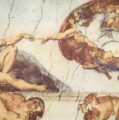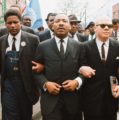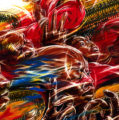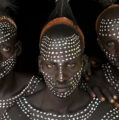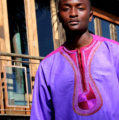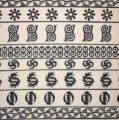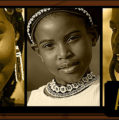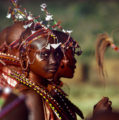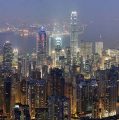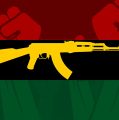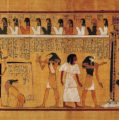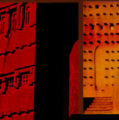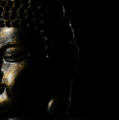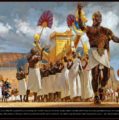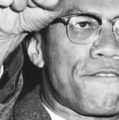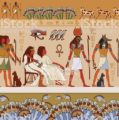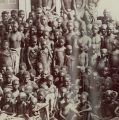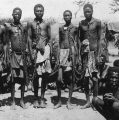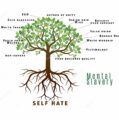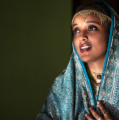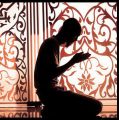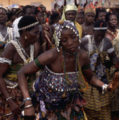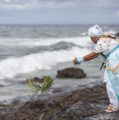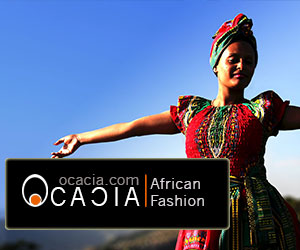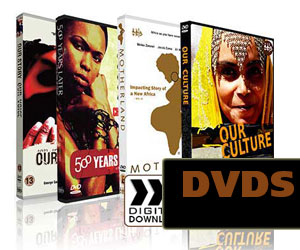
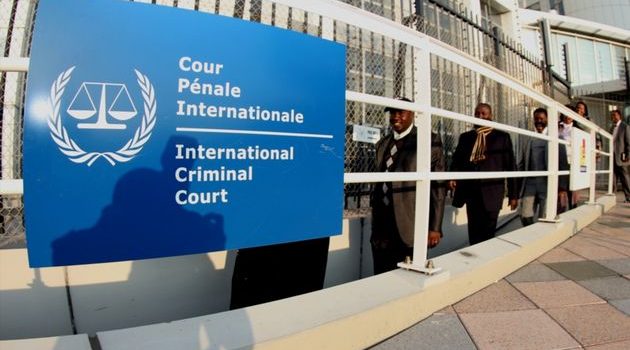
International Criminal Court
Politics October 11, 2012 Mohammad Baseer 3

The International Criminal Court (ICC or ICCt) is an institution acting as a permanent tribunal to prosecute people for war crimes, crimes against humanity and genocide. This means it has the authority to adjudicate on claims brought to it, so it works on a referral system just like a normal court but for claims from all over the world.
It also has the power to prosecute for the crime of aggression (defined as a state using armed forces against another state, whether by invasion, blockade of ports & coasts, or even if one state’s armed forces were allowed into another state for a specified period and they surpassed that period).
The first impression one might glean from its founding principles is that the ICC is benevolent, acting for the greater good of the entire world. However, to date it has indicted and prosecuted so far are approx 90% Africans. The ICC is therefore probably better described as the ICCA, International Criminal Court for Africans, as it seems to harbour a deep-seated “Africa problem” [6].
From this one might accidentally conceive the idea that only Africans commit war crimes, genocides and requires the “higher” morals of Western created institutions to continue to act as parent to these wayward African orphan post-colonial states. And this dyadic parent-child relationship is not limited to the ICC, but to every Western NGO, Government, AID agency, Think Tank, IMF, World Bank, which has Africa’s “best interest” at heart.
We have rejected the double standard that the ICC is applying in dispensing international justice–Tedros Adhanom
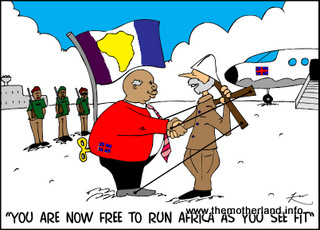
Post-Colonial “Freedom”
As of July 2012 the ICC consists of 121 states parties, 32 signatories and 41 non-signatory UN member states. The states parties are countries that have both signed and ratified the Rome Statute and are thus subject to the ICC’s jurisdiction, including all of South America, most of Europe and approximately half of Africa. The non-signatories are those countries that neither signed nor ratified the Statute and are thus exempt from its jurisdiction, such as China and India.
The big fish – the United States and the NATO nations – are free to violate the international law, to violate human rights with complete impunity. Since the ICC was founded, the United States invaded Iraq …. Israel attacked Gaza, targeted a civilian population … so it seems these rules apply only to weak nations–Kimberley Margaret
Signatories
The signatories are countries that have signed but not ratified the Rome Statute, effectively meaning they are undecided as to whether or not to accept its jurisdiction (an exception being Côte d’Ivoire, which does accept it). These signatory states are required by the Vienna Convention on the Law of Treaties to not commit acts “which would defeat the object and purpose” of the treaty until they definitively decide not to become states parties [1]. There are 3 countries that originally signed but have withdrawn from state party status, i.e. Sudan, Israel and USA, which makes them totally outside its jurisdiction.
Its headquarters are in The Hague, South Holland, Netherlands. Its top four funders are Britain, Italy, Germany and France [2] – incidentally all European Union members. The first Chief Prosecutor was Luis Gabriel Moreno-Ocampo, an Argentine lawyer and prosecutor who is currently 60 years old. In 2006 he dismissed a staff member who accused him of sexual abuse, though that allegation was found to be false. His 9-year term ended in June of this year, and he was replaced by a Gambian lawyer named Fatou Bensouda. She has served as a government civil servant, legal adviser and international criminal law prosecutor. Jeune Afrique, Africa’s leading magazine, has listed her as the 4th most influential African personality in the Civil Society category [3]. She very strongly believes in the ICC’s power and necessity in the world.
THE ROME STATUTE
The Rome Statute of the ICC is its founding treaty, the documented body of principles according to which the ICC operates whose functions are to describe its jurisdiction, structure and functions. According to it, the ICC has the power of complementarity, meaning it can investigate and prosecute in states whose national court systems have failed. This seems noble, until one realises this means that even in best-case scenarios the court is only a last resort against grand-scale crimes. This does nothing to close the impunity gaps by which most perpetrators of grand-scale crimes can get away scot-free, and thereby leaves the victims dissatisfied [4].
Due to the statute having been made on the same day as the institution itself was set up – 1st July 2002, it can only prosecute crimes committed on and after that date. This is known as temporal jurisdiction. It would have gained the power of universal jurisdiction – when a state can prosecute for crimes committed outside its borders regardless of the criminal’s relation to that state, or lack thereof – except that the USA fervently opposed this [5]. Thus the court’s powers have been restricted to the following 3 circumstances:
1 – When a criminal is a member of a state party or any state that has otherwise acceded to the court’s jurisdiction,
2 – When the crime was committed on a state party’s territory or that of a state that has accepted its jurisdiction,
3 – When the court receives a referral from the UN Security Council [5].
Thus, from its inception, the Rome Statute and the court have been heavily restricted in what they can really do. But perhaps this is an advantage considering their track record, outlined below.
‘Special’ Relationship With Africa
The first impression one might glean from its founding principles is that the ICC is benevolent, acting for the greater good of the entire world. However, one well-noted feature that has sparked much criticism is that the people it has indicted and prosecuted so far are approx 90% Africans. The ICC is therefore probably better described as the ICCA, International Criminal Court for Africans, as it seems to harbour a deep-seated “Africa problem” [6]. From this one might accidentally conceive the idea that only Africans commit war crimes, genocides and the like. Here is a list of all the people prosecuted and indicted by the ICC to date, listed by name and country of origin:
| Sylvestre Mudacumura – Rwanda Bosco Ntaganda – Congo Simone Gbagbo – RIvory Coast Abdel Rahim Hussein – Sudan Laurent Gbagbo – Côte d’Ivoire Muammar Gaddafi – Libya Saif al-Islam Gaddafi – Libya Abdullah Senussi – Libya Mohammed Ali – Kenya Uhuru Kenyatta – Kenya Henry Kosgey – Kenya Francis Muthaura – Kenya William Ruto – Kenya Joshua Sang – Kenya Callixte Mbarushimana – Rwanda Simone Gbagbo – Ivory Coast [4] |
Omar al-Bashir – Sudan Abdallah Banda – Sudan Saleh Jerbo – Sudan Bahr Idriss Abu Garda – Sudan Jean-Pierre Bemba – Congo Mathieu Ngudjolo Chui – Congo Germain Katanga – Congo Ahmed Haroun – Sudan Ali Kushayb – Sudan Thomas Lubanga Dyilo – Congo Joseph Kony – Uganda Raska Lukwiya – Uganda Okot Odhiambo – Uganda Dominic Ongwen – Uganda Vincent Otti – Uganda |
This is a criticism that Fatou Bensouda has had to deal with time and time again, and in a nutshell she is sick of it. She claimed that the court’s focus on Africa is a sign that the continent is dedicated to international justice [7]! Not surprising she would say this, considering she has been the ICC’s deputy prosecutor for seven years before her promotion to Chief Prosecutor [8]. Let’s say the ICC has a sincere superhero mission to cure the international problem of undue aggression against a particular group of people, as Bensouda so fervently believes. The problem with Bensouda is that she is voluntarily playing the role of the ICC’s token black friend, their way to “prove” they’re not racist. This is especially poignant considering Moreno-Ocampo’s reputation as a racist due to his disproportionate focus on African aggressions. Why does Bensouda support their work so much when the criticism stands so firmly?
|
|||||||||||||
| ICC and Co The QUACK DOCTOR – FIXING AFRICA: |
The ICC works via referral to the UN Security Council, like as happened with the case of Kenyan rape survivor Ursula Cherono. She was brutally attacked in retaliatory attacks after the Kenyan elections. The attack resulted in spinal cord injury, broken legs and a lost uterus due to the many rapes she endured [7]. She hoped the ICC could do what Kenyan officials couldn’t. Cherono wanted justice as we all would, so she joined the many others who have referred their cases to the ICC. But are Africans the only people on the planet that experience such horrifying and traumatising events? What about the rape victims of the US Armed Forces, for there are extensive records to support their cases? Isn’t that one of the greatest crimes against humanity (women) or crime of (men’s) aggression?
This criticism has been echoed by Chairman of the African Union, Jean Ping, who is “unimpressed” at the ICC’s overemphasis on war crimes in Africa. He questioned why other places where war crimes are committed, i.e. Colombia, Iraq, Caucasus & Gaza, are being ignored [7].
The Western world seems to have something of a love/hate relationship with the ICC. Take for example the case of Omar al-Bashir, which Britain publicly backed and supported but was found to have deemed the ICC unhelpful [9]. Furthermore, Britain seemed to think of the court at the time as some kind of token to “free” South Sudan, which immediately brings the ICC’s self-proclaimed independency into serious doubt [9].
On top of that, the ICC’s referral system gives the impression that the court can only be implemented by nations who volunteer to be part of it. Though many African nations did support it at its inception (and many still do), there was also a hidden agenda. Apart from the funding of pro-ICC NGOs to convince nations to accept it, there was also the amended Cotonou Agreement of 2002 to coerce African nations into ratifying the Rome Statute. This version of the Agreement, revised by the ICC itself, explicitly stated that any ACP (African, Caribbean and Pacific) country that refused to ratify would be denied hundreds of millions of Euros worth of development aid [2].
The Negro who lives on the patronage of philanthropists is the most dangerous member of our society, because he is willing to turn back the clock of progress when his benefactors ask him so to do– Marcus Garvey
This, however, is a false threat because judging from the media one would think Africa as a whole actually needed such aid. Despite ex-Prime Minister Tony Blair’s claim that Africa isn’t making enough progress against poverty Africa’s GDP had increased by 6% as of 2006 (which is above the historical average for rich or “developing” nations), and despite how the media loves to portray the continent Africa as rife with child soldiers,AIDS and/or war victims the actual percentage of Africans in these categories is at most 0.5%, and in many cases much lower [10].
Prominent vocal – and successful – Africans would argue against this, as Ugandan journalist Andrew Mwenda did when confronted by Irish rock star Bono in an African aid conference in Tanzania back in 2007 [11]. His point was that flooding the African continent with aid money solves nothing, as it encourages laziness and neediness. What would be better is for Africans to stop playing the victim role and appreciate the value of investment, and for the West to likewise treat Africans as business partners instead of parasitic beggars. Africans’ aim should not be to get out of poverty, he argued, but to generate wealth for themselves and become rich. It shouldn’t matter that this is unpopular to Western minds, who prefer to feel that giving handouts is enough, because that attitude got China and India where they are now [11].
Unfortunately, too few Africans share this view, and as long as this is the case they will continue relying on foreign aid. On top of that, Bono directly branded Mwenda’s critiques as “b******s” and “bulls**t” [11]! If this doesn’t exemplify the true beliefs of the Western world about Africans nothing does.
As if that weren’t bad enough, George Bush who was in presidency at the time signed into law the American Service-members’ Protection Act (ASPA) to grant USA the right to use military force to free any US citizen being detained by the court. This would mean America has given itself the right to invade The Hague, Holland [12], and the ICC must accordingly pander to America’s sensibilities. This fact alone disproves the ICC’s claims to independence but it doesn’t stop there, because the ICC is funded via voluntary contributions from the UN, contributions from states parties and others [13][14]. It would be downright foolhardy to think this has no influence in how the Court is run.
As Africans themselves can tell anyone, the ICC has spent all of its 10 years involved in human rights cases in Africa [6][7][15]. This occupation takes a good amount of funding and commitment. Why the dedication? Why the hassle? Is it purely to protect the defenceless victims of human impunity against the “uncivilised” acts of vicious dictators? Is Africa an inadequate enforcer of justice, despite African leaders convening in Addis Ababa earlier this year to discuss enforcing justice without international aid [15]? Despite the existence of the African Union and the African Court on Human and People’s Rights (AfCHPR)? Is Africa the only place where dictators abound and human rights are compromised for selfish greed, or is this another Eurocentric plot against African progression?
To this day Africa is somewhat divided on the ICC; government officials and the African Union generally disapprove while the ordinary citizens show somewhat more support. One could interpret this to mean that the corrupt African leaders are attempting to evade justice, but what seems more likely is the ICC is targeting African leadership – regardless of legitimacy. Much of this legitimacy is not Africans’ definition thereof, as there is an acknowledgement in the diaspora that many African politicians and leaders are educated in and “elected” by the West. In the interests of fairness, though, the ICC has successfully convicted one suspect (though after many failed attempts) – the Congolese lost boy Thomas Lubanga Dyilo. He was convicted of using child soldiers under the age of 15 in his militia, and has been sentenced to a total of 14 years of prison. However, his conviction was weak from the beginning, as the trial had been halted due to Moreno-Ocampo’s refusal to disclose some evidence, and Dyilo’s defence team was given a smaller budget than the court, and many documents were too heavily censored to be fully legible [16].
But why didn’t the AfCHPR execute the conviction of this leader? It was in existence at the time of his prosecution; it was founded in 2004 while Dyilo’s (successful) conviction was in March 2012. Some say it simply doesn’t have the capital to convict such a daunting case [15]. That is why the ICC at its conception was so largely supported by Africans – as with any “developing” nation you do not have to look far to see the injustice in the justice system.
The white man has succeeded in subduing the world by forcing everybody to think his way. The white man?s propaganda has made him the master of the world. And those who have come in contact with it and accepted it have become his slaves.– Marcus Garvey
Assuming the lack of funding is the reason for the African Court’s lack of success and support, why is this so? As a continent Africa is and always has been abundant in natural resources and wealth. Could it be because of the collective wealth stolen from Africa during the Atlantic slave trade, colonisation and the historical (and current) scramble for Africa? Let’s look at the case of Jean-Pierre Bemba. When he was being tried by the then Prosecutor Luis Moreno-Ocampo, it was noted that only Bemba sat in the dock and none of the armed pro-government forces of Congo [9]. Why was this?
Besides, are only African victims ratting out their leaders to the international community? We need not look far to find crimes of genocide, crimes against humanity and the crime of aggression in other regions of the globe, as Jean Ping pointed out [7]. Let’s look at some of the war crimes of the US and British forces. The occupation of Iraq involves many illegal operations, based upon international humanitarian law [17]. From the beginning, the fallacies of a quick and tight occupation of Iraq were debunked by reporters and Iraqi media sources. The bombs that were marketed as precise proved to be much less. Iraqi infrastructure, communities, and families were demolished by the inaccurate bombings. Rules of engagement in Iraq became very vague which made every Iraqi an insurgent. Iraqi civilians were killed out of assumptions or fear. The amount of force and firepower against civilians was deliberate overkill considering the relative dearth of military might of their opponents [17].
There have been leaks of soldiers giving accounts of these attacks on civilians. In one specific case, a US chopper opened fire on a minivan filled with children and family not once, not twice, but thrice. One of the soldiers that saw the aftermath tried to mend the situation by saving a bullet-riddled child from death. The US chopper’s reason for engagement was the illusion of an RPG in the hand of an onlooking civilian. Later investigation showed very vaguely that the RPG was handled by insurgents across the street from the van. But the civilian within the minivan did not have any weapons. Movies like Green Zone tell a more vivid story of the reasons of US and British occupation of Iraq. These stories are a common theme in US history. Are these not crimes against humanity or crimes of aggression?
And even in Africa, why are Africans the only ones being indicted and prosecuted? One could argue that because no war crimes or genocides are being committed by foreigners (at least not ones the ICC is doing anything about for whatever reason) the ICC can’t do anything. Considering the dearth of institutions to oppose foreign encroachments on African development, this once again leaves Africans at the mercy of the world. It’s once again up to “the white man” to undertake his burden to instil civilisation in the world to rescue the other peoples from themselves and their “savage” ways.
Facts do show that the African leaders are usually guilty of the crimes they commit. The international media is littered with accounts of the wrongs of Africa. Mugabe, to say the least, has made quite a name for himself through his own form of reparations in Zimbabwe.
Nevertheless, this isn’t always the case. Laurent Gbagbo, for example, had been transferred to the Hague unusually quickly following allegations against him. In fact the transfer was so speedy it was comparable to an abduction, [8] and was in breach of international procedural code and directly ignored Ivoirian demands for peace. Even Jerry Rawlings, ex-president of Ghana, was angered to the point that he issued a statement on behalf of most Africans demanding that Africa should have the right to prosecute its own criminals and get rid of international intervention [8]. This was all around the time the Court declared Bensouda would be promoted to Chief Prosecutor.
Around the same time Gbagbo was being transferred to The Hague, Alassane Ouattara was left well alone in his hotel in Abidjan. He was Gbagbo’s rival and a former official of the International Monetary Fund [18], therefore favoured by the Western powers, and was married to Dominique Folloroux-Ouattara, a white Frenchwoman [19]. He issued military force and former rebels from the north, led by Guillaume Soro, to oust Gbagbo and cut off his access to international financing & funds from the cocoa industry.
As if that weren’t enough, the USA, UN and EU imposed sanctions to ruin Côte d’Ivoire’s economy, just to force Gbagbo to step down from leadership. When that didn’t work, French and UN helicopters bombed his place of residence by dropping missiles on the whole city of Abidjan [18].
Now one must ask: if the ICC turns a blind eye to European and Euro-American aggressions, how can they be trusted to dispense true justice anywhere in the world? In the words of Martin Luther King Jr., injustice anywhere is a threat to justice everywhere, and since some injustices are being ignored there is no hope for justice to prevail.
Injustice anywhere is a threat to justice everywhere– Martin Luther King,Jr
Whether they draw attention or are given undue investigation they have all been highly publicised. The Gaddafi family has gained a somewhat Kardashian-level popularity. Media outlines their lavish spending in the international retail and real estate community. They are given this celebrity status because of their failed leadership. The Kony and the Lost Boys headline takes the cake. These crimes are serious, granted, but why are they given such pop recognition by mainstream media and such grim recordings by NGOs? Are the inhumane crimes of Africa more atrocious than the crimes of any other region? Or is Africa the arch-villain who terrorises the international community? History and current events reply with a resounding NO.
Thus the occupation of the ICC in Africa by proxy is no longer the debate; it is an established fact. The particulars of this occupation and the necessary resistance are the topics worthy of debate.
ICC & GADAFFI
This Section is added from another article, it was written prior to the Western Execution of Gaddafi
The ICC has issued a typical “Fugitives wanted by the International Criminal Court” For Gaddafi. How does the International Criminal Court (ICC) work? They have been issuing selective warrants to African leaders, some more deserving than others (re: Bashir).
However, the state of Libya is not a party to the Rome Statute, and is therefore not bound by the ICC unless something is referred by the UN Security Council. Article 16 of the Rome Statute has a built in time delay for cases presented through the UN Security Council.
Article 16: Deferral of investigation or prosecution
No investigation or prosecution may be commenced or proceeded with under this Statute for a period of 12 months after the Security Council, in a resolution adopted under Chapter VII of the Charter of the United Nations, has requested the Court to that effect; that request may be renewed by the Council under the same conditions.
ICC STATES: The situation in Libya was referred to the ICC Prosecutor by the United Nations Security Council, through the unanimous adoption of Resolution 1970 on 26 February 2011. The Security Council decided, under Chapter VII of the United Nations Charter, that “the Libyan authorities shall cooperate fully with and provide any necessary assistance to the Court and the Prosecutor pursuant to this resolution” and, while recognizing that States not party to the Rome Statute have no obligations under the Statute, the Security Council urged all States and concerned regional and other international organizations to cooperate fully with the Court and the Prosecutor.
The flexibility of the ICC should be reported to Guinness World Records under the category of best contortionist. They have not followed the Rome Statute in this situation, because they didn’t wait 12 months as required, but only 6 days. So again, we see how the choir of Europe sings in tandem and how all institutions: the 4Ms Media, Merchant, Missionary and Military synchronize to bring about an intended result.1)African Agency by ‘Alik Shahadah
USA & ISRAEL: EXEMPTIONS & EXCEPTIONALISM
In specific regard to the USA, there has from the start been what can rightly be called exceptionalism: the concept that American citizens should be exempt from being tried by the ICC simply by virtue of being American [20]. First it began with USA’s (and Israel’s) decision to withdraw, or ‘unsign’, from ICC jurisdiction after initially signing the treaty, and thereafter continued by manipulating the ICC’s referral process. This allowed USA back in 2011 to vote for the situation in Libya to be referred to the UNSC, despite the fact that both USA and Libya do not accept the ICC’s jurisdiction [21]. This is blatantly a tactic to undermine African figures of authority; if Libya didn’t ratify the Rome Statute why should it accede to the court’s jurisdiction, especially considering the USA never would if the situation were reversed?
On top of that, Bush’s adoption of the ASPA gives USA military personnel the right to commit any war crimes they wish with impunity. Then there are also certain bilateral immunity agreements USA made with over 100 countries, including states parties to the ICC, that effectively mean USA can refuse military aid to those nations should they refer Americans to the UNSC [16][20]. Additionally, as a veto-wielding member of the UNSC, the USA also has the right to refuse to refer its nationals to the court [7].
Specifically addressing Israel, there are the ongoing attacks made by Israeli civilians (i.e. the price taggers & hilltop youth) and military personnel alike against Palestinian civilians. However, Palestine is somewhat unique in that it has referred cases of this to the ICC, but the ICC flat-out refused to investigate! Their reasoning was that the UN General Assembly doesn’t recognise Palestine as a state [22], therefore its claims are effectively invalid! However, it may accept future claims if Palestine upgrades its UN status from ‘observer’ to ‘non-member state’. All this really means for Palestine is that Israeli aggression is ignored and allowed until Palestine accepts certain terms and conditions laid down in paperwork that may or may not make any difference.
There’s also the point that back in 2010 Israel’s Operation Cast Lead were deemed violations of the rules of war and maybe even crimes against humanity [23]. However, the Israel Defence Forces (IDF) was in response called “the most moral army in the world” [23]! Israel to this day refuses to ratify the Rome Statute for fear that IDF officers, soldiers and Israeli politicians may be prosecuted, and thus remain outside its jurisdiction.
CRITICISMS AND OPPOSITION
Despite the ICC’s self-portrayal and founding tenets, it has consistently failed to live up to its own standards. Needless to say, many around the world have found much to criticise about its practice. For instance, both India and China have been highly critical of it since 2005 [24][25]. However, many of those criticisms are based on their own national interests. China has 5 main qualms with it:
1 – Acceptance of its jurisdiction is not voluntary and complementarity gives it the right to judge other nations’ fitness to conduct their own trials,
2 – Internal armed conflicts are qualified as war crimes,
3 – Crimes against humanity are defined as crimes even outside of wartime,
4 – The ICC’s power to prosecute for the crime of aggression weakens the UNSC (of which China is a permanent veto-wielding member),
5 – It can be easily manipulated by political influences. [25]
India’s qualms, meanwhile, are that it has no option for states to accept its jurisdiction voluntarily or temporarily. India also worries about how the ICC will judge its own legal systems, and the ICC does not limit its definition of war crimes to international armed conflicts. As with China, India opines that the ICC can be politically manipulated due to the Prosecutor’s power to prosecute proprio motu and the involvement of UNSC [24].
Other people and groups, though, have had more altruistic motives to condemn the ICC. In June 2012 David Comissiong, President of the People’s Empowerment Party (PEP) founded in Barbados, issued a written challenge to the ICC. Drawn up by Comissiong and an international assembly of Pan-African activists who travelled from New York to The Hague, the text was directed to Bensouda herself and by extension the whole ICC [26]. After warning that the world was watching them, this document stated how all of the prosecuted have been African leaders the West wishes to be rid of. This naturally leads to a suspicion that the ICC is nothing but a tool of Western powers, then a request was made to the ICC to prove this wasn’t the case. Finally, the ICC was demanded to do something for the victimised Libyans, Haitians, Ivoirians and African-Americans, with a reminder that it would be judged on its response to this unambiguous challenge [26]. The reason the Libyans, Haitians, Ivoirians and African-Americans were specifically addressed was to highlight the roles played by American, British, French, Canadian and Italian leaders in crimes against humanity and war crimes against these people, whom Comissiong and his team requested the ICC to investigate and prosecute during their visit to The Hague.
Other critics have furthermore noted how the court exacerbates ongoing conflicts, treats the defence unjustly and does not truly clarify why it takes on certain cases and not others [16].
There is also the problem of its temporal jurisdiction, especially troublesome for people of African descent. This means if any of them wish to have Europe or USA, for example, prosecuted for genocides done before 1st July 2002 (e.g. the German genocide of the Herero & Namaqua from 1904-07, the European trans-Atlantic slave trade of 1501-1865, the British atrocities against the Kenyan Kikuyu in the 1950s, the European Scramble for Africa of 1881-1914, etc.), the ICC will refuse to do anything. This is despite the fact that the sheer numbers of slaughtered innocents reaches well into the millions and the amount of reparations can be fairly easily calculated. As always with European and Euro-American elites, they refuse to recompense their victims, or even accept their ways as immoral.
SOLUTIONS
All in all, the ICC is basically another tactic in the gentrification and subjugation of Africa. To justify the foreign investment in Africa there must be a legitimate reason for the invasion, and the Western media supplies this by casually associating African leaders as a whole with bad leadership and war crimes. The ICC’s involvement in Africa and seizure of its leaders is a tactic needed to make Africa more “civilised” and culturally appropriate for foreign development, which it will do nothing to oppose.
The ICC should thus concern itself much more with the criminal invasions of “developed” nations on “underdeveloped” nations, and allow the internal cases of human rights to be settled internally. That’s why organisations such as the AfCHPR and the African Union exist. The African Union does not oppose justice or condone impunity [7], and it seeks to establish justice in Africa without the publicity or intrusiveness of the international media. It should thus be left to do this, using the abundant resources and wealth Africa still possesses to build itself up as and when necessary. The same goes for the AfCHPR. They ought to use this power to alter the leadership of African nations, rejecting faulty leaders as & when they show up and supporting the ones who benefit African interests, as well as strengthen African media sources to give the citizens a greater say in how their countries are run and a more accurate portrayal of African people to the rest of the world. This effectively means the ICC should scrap its concept of complementarity, as it had failed its own mission ever since America was allowed to restrict its activity. Why should a legal system, especially one so heavily influenced by two of the world’s greatest repositories of war criminals, have the right to judge other nations’ fitness to try their own criminals? And with specific regard to Africans and their descendants in the diaspora, why should this court be supported or allowed to hold any kind of power over them when Western powers have been the greatest instigators of war crimes and crimes against humanity for at least the past five centuries?
People of African descent (continental & diasporic alike) would do well to keep their eyes on the ICC’s response to Comissiong’s letter, as would the African Union and AfCHPR. It may reveal something about how the Western world thinks of Africa and the “developing” world in general.
Sources
[1] http://web.archive.org/web/20050208040137/http://www.un.org/law/ilc/texts/treatfra.htm
[2] http://www.newafricanmagazine.com/special-reports/sector-reports/icc-vs-africa/europe-masters-behind-the-icc?print=1&tmpl=component
[3] Jeune Afrique, No. 2450-2451, 26 Dec 2010 – 8 Jan 2011.
[4] http://ictj.org/sites/default/files/ICTJ-RSRC-Global-Complementarity-Briefing-2010-English.pdf
[5] Elizabeth Wilmshurst, 1999. ‘Jurisdiction of the Court’, p. 136. In Roy S Lee (ed.), The International Criminal Court: The Making of the Rome Statute. The Hague: Kluwer Law International. ISBN 90-411-1212-X.
[6] http://www.aljazeera.com/indepth/opinion/2012/03/20123278226218587.html
[7] http://www.nation.co.ke/oped/Opinion/International+justice+Is+Africa+on+trial+/-/440808/1380106/-/javpde/-/index.html
[8] http://www.newafricanmagazine.com/features/politics/an-african-now-heads-the-icc-what-next
[9] http://www.economist.com/node/18176088
[10] http://www.latimes.com/news/opinion/commentary/la-oe-easterly6jul06,0,5290414.story
[11] http://sayanythingblog.com/entry/bono_heckles_speaker_at_african_aid_conference/
[12] http://www.huffingtonpost.com/dennis-jett/icc-united-states_b_1368182.html
[13] http://www.cfr.org/international-criminal-courts-and-tribunals/frequently-asked-questions-international-criminal-court/p8981#p7
[14] http://www.insidejustice.com/law/index.php/intl/2008/11/10/differences_icc_icj
[15] http://dailymaverick.co.za/article/2012-05-11-d-day-for-the-icc-in-africa
[16] http://www.cfr.org/africa/africa-international-criminal-court/p12048
[17] http://www.consumersforpeace.org/pdf/war_crimes_iraq_101006.pdf
[18] http://topics.nytimes.com/topics/reference/timestopics/people/g/laurent_gbagbo/index.html
[19] http://www.bbc.co.uk/news/world-africa-12934834
[20] http://consortiumnews.com/2011/06/05/american-exceptionalisms-hypocrisy/
[21] http://www.redress.cc/global/slittlewood20110527
[22] http://latimesblogs.latimes.com/world_now/2012/04/icc-rebuffs-palestinians-war-crimes-case-against-israel.html
[23] http://www.haaretz.com/print-edition/opinion/israel-must-stop-boycotting-international-criminal-court-1.265600
[24] http://www.ielrc.org/content/a0505.pdf
[25] http://jicj.oxfordjournals.org/content/3/3/608.abstract
[26] New African, No. 520, August-September 2012, page 20.
References
| ↑1 | African Agency by ‘Alik Shahadah |
|---|

